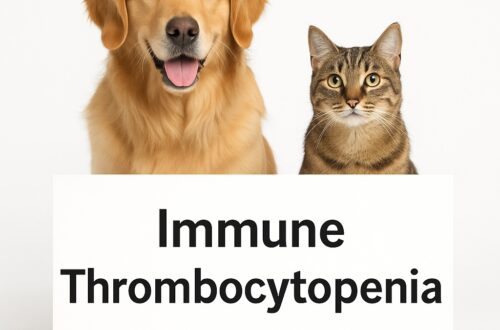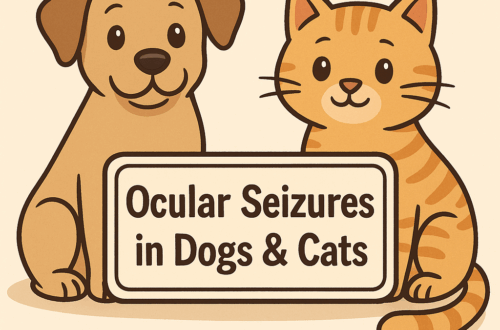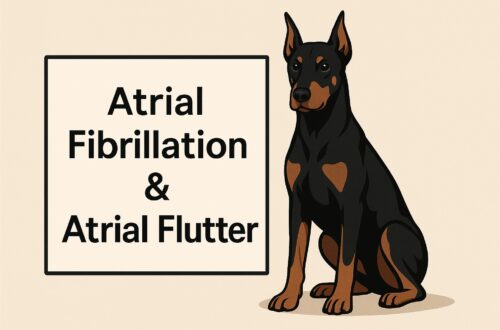Accidental ingestion of human and animal medications is one of the most common toxicities in companion animal medicine, and non-steroidal anti-inflammatory drugs (NSAIDs) are among the biggest culprits. Maybe a pill rolls under the couch, or a curious dog noses a bottle off the counter before you know it, a pet has ingested something dangerous.
Unfortunately, NSAID ingestion can cause life-threatening illness without quick treatment. This post shares what NSAIDs are, why they’re harmful to pets, and how intoxications are managed.
What Are NSAIDs?
NSAIDs (non-steroidal anti-inflammatory drugs) are medications designed to reduce pain, inflammation, and fever. They work by blocking enzymes called cyclooxygenase (COX) and sometimes lipoxygenase (LOX), which produce chemical messengers in the body called prostaglandins and thromboxanes.
- Human NSAIDs (common examples): ibuprofen (Advil®), naproxen (Aleve®), diclofenac (Voltaren®)
- Veterinary NSAIDs (prescribed for pets):
- Carprofen (Rimadyl®, Rovera®, Novox®)
- Deracoxib (Deramaxx®)
- Firocoxib (Previcox®)
- Meloxicam (Metacam®)
- Robenacoxib (Onsior®)
Why does it matter which COX enzyme is blocked?
- COX-2: primarily drives inflammation; this is the enzyme NSAIDs are meant to target.
- COX-1: provides protective effects, including:
- Reducing stomach acid and protecting the stomach lining
- Maintaining blood flow to kidneys and stomach
- Helping platelets (clotting cells) function properly
In overdose situations, COX-1 is often affected more than COX-2, which is why toxicity can be so dangerous.
Why Are NSAIDs Toxic to Pets?
When pets ingest too much NSAID, or any NSAID not intended for them, protective prostaglandins are lost, which can lead to:
- Stomach and intestinal ulcers (sometimes life-threatening)
- Acute kidney injury
- Liver damage (seen with certain NSAIDs, mechanism still unclear)
- Central nervous signs
How Much Is Too Much? (Toxic Doses)
Even veterinary-prescribed NSAIDs can cause problems if overdosed, and cats are especially sensitive.
| NSAID (generic) | Common vet brand(s) | Pet-owner guidance (plain language) | Clinician notes — approx. reported toxic doses |
|---|---|---|---|
| Carprofen | Rimadyl®, Rovera®, Novox® | Extra tablets can cause stomach ulcers and kidney injury. | GI signs ~20–40 mg/kg; renal/systemic injury ≥40–60 mg/kg. |
| Deracoxib | Deramaxx® | Double dosing or chewing the bottle is dangerous. | GI ulceration with single ingestions ≥8 mg/kg. |
| Firocoxib | Previcox® | Do not share with cats; keep bottles secure. | GI upset at ~5–10× therapeutic dose (5 mg/kg/day). |
| Meloxicam | Metacam® | Cats: even a single extra dose can be deadly. | Dogs: toxicity ≥0.3–0.5 mg/kg acute. Cats: very narrow margin of safety. |
| Etodolac | Etogesic® | Overdoses can ulcerate the stomach. | Ulceration reported at ~22 mg/kg. |
| Robenacoxib | Onsior® | Still dangerous in overdoses despite short action. | Adverse effects with ≥10× the recommended dose (1–2 mg/kg). |
| Aspirin (older use) | — | Never give unless directed by a vet. | Cats highly sensitive; toxicity may occur near therapeutic levels. |
| Human NSAIDs | Ibuprofen (Advil®), Naproxen (Aleve®), Diclofenac (Voltaren®) | Never safe for pets. Even one pill can be dangerous. | Ibuprofen: GI signs ~25 mg/kg; renal ≥50–100 mg/kg. Naproxen: toxic at very low doses (~5 mg/kg). |
Signs of NSAID Intoxication
Pet owners should watch for:
- Vomiting (sometimes with fresh blood or “coffee-ground” appearance)
- Diarrhea or black, tarry stools
- Loss of appetite
- Drooling
- Abdominal pain
- Lethargy, depression
- Increased thirst and urination
- Pale gums
- Seizures or collapse (in severe cases)
- Ulcers in the mouth
How Do Veterinarians Treat NSAID Toxicity?
If ingestion is suspected, time is critical. Veterinary teams act quickly to assess organ function and remove or bind the toxin.
Typical steps include:
- Blood and urine testing – to check liver and kidney function.
- Decontamination – inducing vomiting (if safe and within 1–2 hours of ingestion).
- Activated charcoal – given orally to bind remaining drug in the GI tract.
- Appropriate fluid therapy – to protect the kidneys and maintain hydration.
- GI protectants and anti-nausea medications – to minimize further gastrointestinal damage.
- Advanced support – patients with liver injury or clotting issues may need additional interventions, ideally overseen by a board-certified veterinary emergency and critical care specialist.
Key Takeaways
- Pets and NSAIDs don’t mix. Even small amounts of human pain relievers can cause serious harm.
- Common consequences: stomach ulcers, kidney injury, and sometimes liver damage.
- Early action saves lives. Prompt veterinary treatment dramatically improves prognosis.
For urgent help with suspected intoxication, pet owners may contact the ASPCA Animal Poison Control Center.
💡 For Pet Owners: Store all medications out of reach of pets; childproof containers aren’t pet-proof.
💡 For Veterinary Professionals: NSAID toxicity remains one of the most common toxic exposures. Early recognition, decontamination, and aggressive supportive care are vital for a positive outcome.








Hi Dr Byers. I have trying to reach you regarding an ACVIM ACVIM Advanced Continuing Education Course we would like to have you speak at . If you would, please contact me at the email address above
Mark Acierno